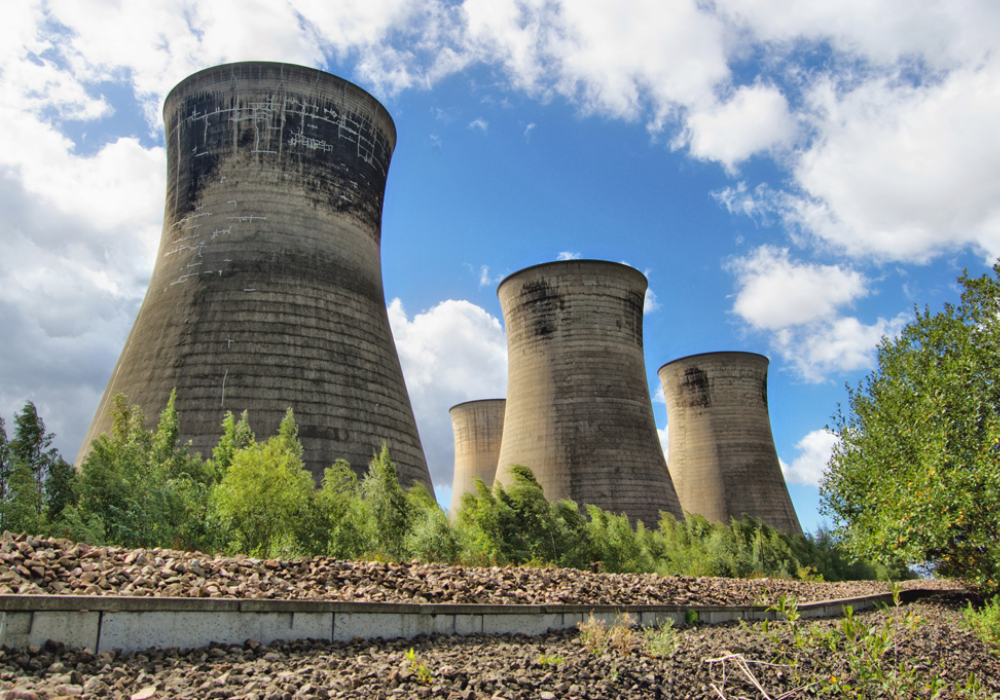National Grid ESO revealed that Great Britain has achieved its first month - more than 727 hours - without generating electricity from the fossil fuel

In 2019, global energy-related CO2 emissions increased by 0.5% with economic growth of 2.9 (Credit: pxfuel)
The record period of coal-free power generation in Great Britain could last until July, according to an energy expert.
This comes as the network operator National Grid ESO revealed in a Twitter post on 10 May that the country had achieved its first month — more than 727 hours — without generating electricity from the fossil fuel.
This follows an announcement on 28 April that the grid had beaten the previous coal-free record of 18 days set in June 2019.
Great Britain’s record of coal-free generation could last until July
Phil Hewitt, director of energy market analyst EnAppSys, believes the only reason coal should run is if there is a system stability issue, which is why the previous record period ended after the Ratcliffe-on-Soar power station in Nottinghamshire was used to provide grid support.
“We have got the issue where there is between 10% and 20% less demand because of coronavirus — depending on what the day looks like and how sunny it is,” he added.
“So, there is another two gigawatts (GW) or 3GW missing from the demand side, meaning there’s less demand for power and coal moves further down the stack.
“The only reason why coal should run is if there is a system stability reason in the Midlands essentially.
“But if National Grid doesn’t need to and they have worked out how to run the system without needing Ratcliffe [powe station] running in the middle of the country, then that would imply that the record should keep going until probably towards the end of July or beginning of August.”
How Great Britain has gone one month without generating power from coal
The latest milestone comes as the UK government is aiming to reduce its reliance on high-polluting fossil fuels, with policymakers setting a 2025 deadline for all coal-fired power stations to be permanently removed from the grid.
National Grid ESO’s director, Fintan Slye, said last month that 2020 is “shaping up to be a record-breaking year for Great Britain’s electricity system”.
He claimed the operator has been planning and investing in the system for several years to ensure it was ready to “run a coal-free system with an increasing share of renewables”.

Although Hewitt admits the record would be “less likely” if it wasn’t for the coronavirus crisis, he believes one of the main reasons Great Britain has been able to operate the system without coal for an entire month is because it hasn’t “got that many plants left”, so it is “kind of running out of coal”.
He said that out of the 10 units in the country, there are only five that are currently available.
“So, compared to the number of old units we had four or five years ago, it’s a massive difference and reduction in capacity,” he added.
Due to the carbon price support, introduced by the coalition government in 2013 to lift the price of carbon, alongside the low price of gas, this has led to a rapid reduction in coal and meant the fuel is now “out of merit”, according to Hewitt.
He said that a power station must pay the carbon price support and then on top of that pay to be part of the EU emissions trading system (EU ETS) — which was the world’s first major carbon market designed to reduce greenhouse gas emissions cost-effectively.
“So, our coal-fired power stations, which generate about twice as much CO2 than a gas plant, for every £9 that a gas station is paying, they are paying £18,” he added.
Coal plants may come back on for commissioning
Hewitt expects coal power stations to start bringing themselves back as a commissioning task, as they are currently switched off for maintenance work to ensure they are ready for winter.
“If we look at coal, the next station due back on in terms of availability is Drax on 22 June,” he added.
“If it comes back and they need to give it a run to check it’s all working after its been offline, then coal could be back on the system at the end of June.
“But that wouldn’t be because of the market, that would be to check that all the work they have done has worked.
“West Burton is due back the following week on 29 June and two units at Ratcliffe are coming back online at the beginning of July.
“So, there is potentially commissioning runs on these coal stations to check they work.
“But there is no market reason why they should run until maybe the beginning of August because, by that point, you would maybe want to start trying out your plants.”
